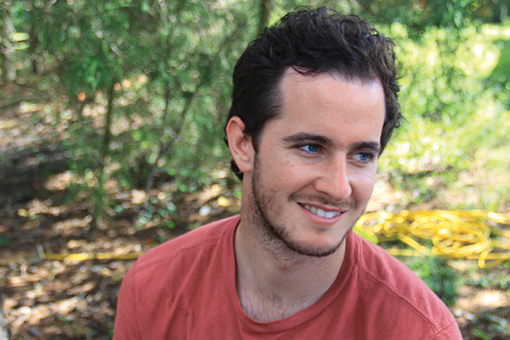View a video interview with Drew Chafetz below.
By the time he was 12, Drew Chafetz had visited six of the world’s seven continents, thanks to his parents’ determination to expand the family’s horizons. That not only spurred him to a lifelong love of travel, but into a career that involved his other passion: playing soccer.
Wherever he went on family vacations, Chafetz enjoyed sharing the joy of the “beautiful game” with other fans around the world. But he also noticed how many of his young peers were forced to play in makeshift conditions that were unimaginable to a child growing up in Washington DC. During his last year in college, while watching Moroccan kids play soccer in an alley divided by a foot-deep cement canal, Chafetz decided he wanted to help.
So after graduating from the University of Colorado at Boulder in 2006, Chafetz and a former college teammate, Alfredo Axtmayer, founded a nonprofit soccer organization called love.fútbol, which builds soccer fields around the world using a community-driven development model.
Determined to ensure that young soccer players had a safe space to play, the two co-founders raised $30,000 through private donations, and another $25,000 in a joint seed grant from FIFA and the Inter-American Development Bank (IDB). One of their first projects was in Guatemala, where they identified three rural communities in need of new soccer pitches. As their ambitions grew, they targeted Brazil. So far, love.fútbol has helped 15 communities build new soccer fields in those two countries, with plans to expand to Colombia, Haiti and Mexico.
View a video interview with Drew Chafetz below.
But what sets love.fútbol apart is its reliance on the initiative and involvement of local leaders. While the nonprofit provides raw material and technical expertise, the individual communities donate the labor and land needed to execute the project. Community investment makes the fields sustainable, says Chafetz, since they are a constant reminder of what local residents have accomplished
by themselves.
The organization’s model has helped it move beyond traditional philanthropy. After winning the “Sport for a Better World” competition sponsored by Ashoka Changemakers and Nike in 2010, love.fútbol has attracted corporate partners such as Coca-Cola and Odebrecht and is focusing on building more partnerships.
As the nonprofit gains momentum, it’s partnering with Ashoka Brazil during the World Cup in June to create a lasting social legacy after the tournament. Love.fútbol has already built four soccer fields in the country, providing a secure place to play for over 4,500 children. The organization has even received the support of Brazilian soccer stars like Marta, Romário and Hernanes.
Chafetz’s ultimate goal is to take love.fútbol’s development model across the globe. Soccer “calls deeply to people,” he says. “It makes them feel human and express themselves, and that’s incredibly valuable in people’s lives; it’s lifesaving.” Thousands of aspiring young soccer players in Latin America couldn’t agree more.






